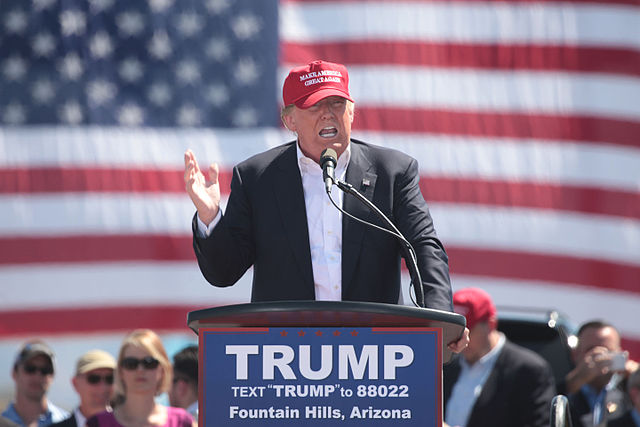The 2024 general election was about 2 weeks ago, and the election outcome was a huge win for the Republican Party. Not only did Donald Trump win the Electoral College vote, he also won the popular vote. (As an aside, no one is mentioning that the only other president to serve non-consecutive terms was Grover Cleveland, who won in 1884, lost in 1888, and won reelection in 1892.) Better still for the GOP, Republican candidates will have majorities in both houses of Congress in January 2025.
It would appear that the American people have spoken. They prefer what the Republicans have to offer. Voters are rightfully concerned about government debt, inflation, crime, homelessness, housing price increases, and a sense that the middle class is falling behind. Voters also fear the global economy, but they are wrong about this. Still, the conventional wisdom holds that the Republicans are “better for the economy than the Democrats”, or something to that effect.
Unfortunately, the Republicans are not likely to make the necessary (and drastic) changes to policy that are needed to put the country on a path to a brighter future.
Government Spending is the Main Problem
The main source of our current malaise is government spending. It is increasing much faster than the growth of the economy. The government’s budget is has exceeded tax revenues since 2001, and the gap keeps increasing. Our government can borrow to cover the difference, but the deficit is so huge that there is not enough money to borrow.
This leaves inflation as the only option—and inflation can be ruinous. We are already feeling its effects now. In fact, the country has been through another inflationary binge, during the period of 1966-1980. That inflation will be small potatoes compared to what is in store for us if the Republicans behave like they did the last time they had control of the White House, the House of Representatives, and the Senate.
Compassionate Conservatives Trash the Country
When Bill Clinton left office in January 2001, the economy was already contracting from the bursting of the dot-com bubble. Nonetheless, he and the Republican Congress had presided over a large increase in tax revenues from the booming economy of the 90s, and a reduced rate of growth in government spending. This led directly to the government paying off all of its debt honestly (though not the $4.2 trillion owed to Social Security). Government debt had been a constant menace throughout the 80s, and now it was a non-issue. This was an event to celebrate.
Thus, despite the recession, George W. Bush and the Compassionate Conservatives in Congress took office with the future looking bright. They could have kept government spending under control.
Yet they spent money like Democrats. In just 6 years, the government’s budget had increased by almost 50%, and government debt exploded. The Republican Party lost all credibility as a result.
Donald Trump Espouses Economic Fallacies
By far, the most significant component of government’s spending is senior entitlements: Social Security and Medicare. Without going into detail here, these massive Ponzi schemes must be replaced with private savings accounts. Allowing them to continue will have cruel consequences for future Americans, making them needlessly (and drastically) worse off. Yet Donald Trump has promised that he will not touch Social Security and Medicare.
He also believes that when we trade with China, Japan, Mexico, etc., we are the losers. He has promised tariffs and even outright trade wars to fix this problem. Yet this is an economic fallacy that has been debunked for 250 years, going back to Adam Smith and The Wealth of Nations. His solutions are the problem.
Donald Trump’s policy of eliminating income taxes on tips and overtime is therefore an example of attacking the leaves of a problem, rather than the root of the problem.
A Minimally Acceptable Solution
One possible compromise solution would be to keep the government’s budget constant during Trump’s 2nd term (i.e., no spending increases for four years). This would allow economic growth to catch up to government spending. This would be far from ideal, but at least our government could begin to pay off some of its massive debt.
However, this would be politically unpopular if the economy enters a recession, since people expect the government to save the economy with huge spending increases, as prescribed by the economist John Maynard Keynes.
Why I Voted for Javier Milei, not Donald Trump, for US President
The leader that the USA needs now is Javier Milei of Argentina. If Donald Trump and his new Department of Government Efficiency really do produce significant cuts to government spending, then I will rejoice. That is what Milei has done in his country (thus saving his people from another financial catastrophe like in 2001).
I am not counting on it, though. I expect the incoming Republican majorities to behave just like the Compassionate Conservatives.



